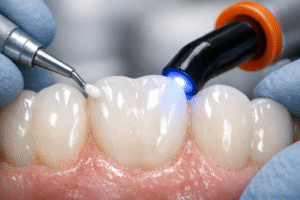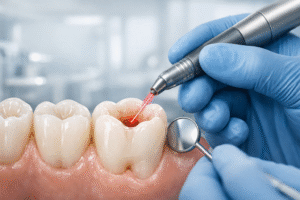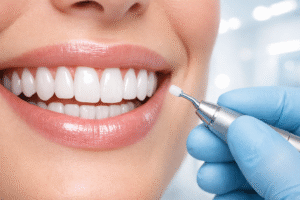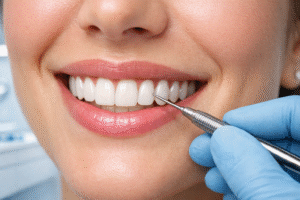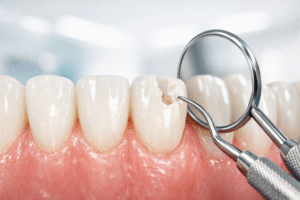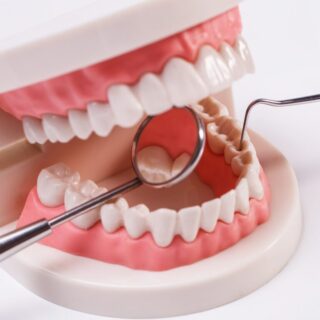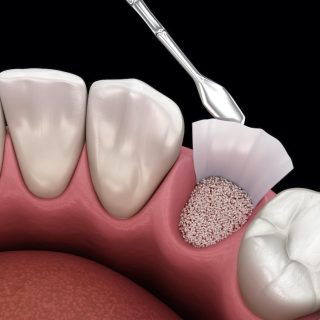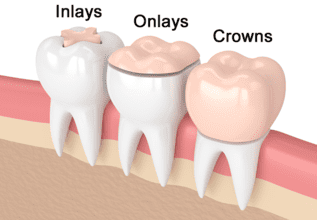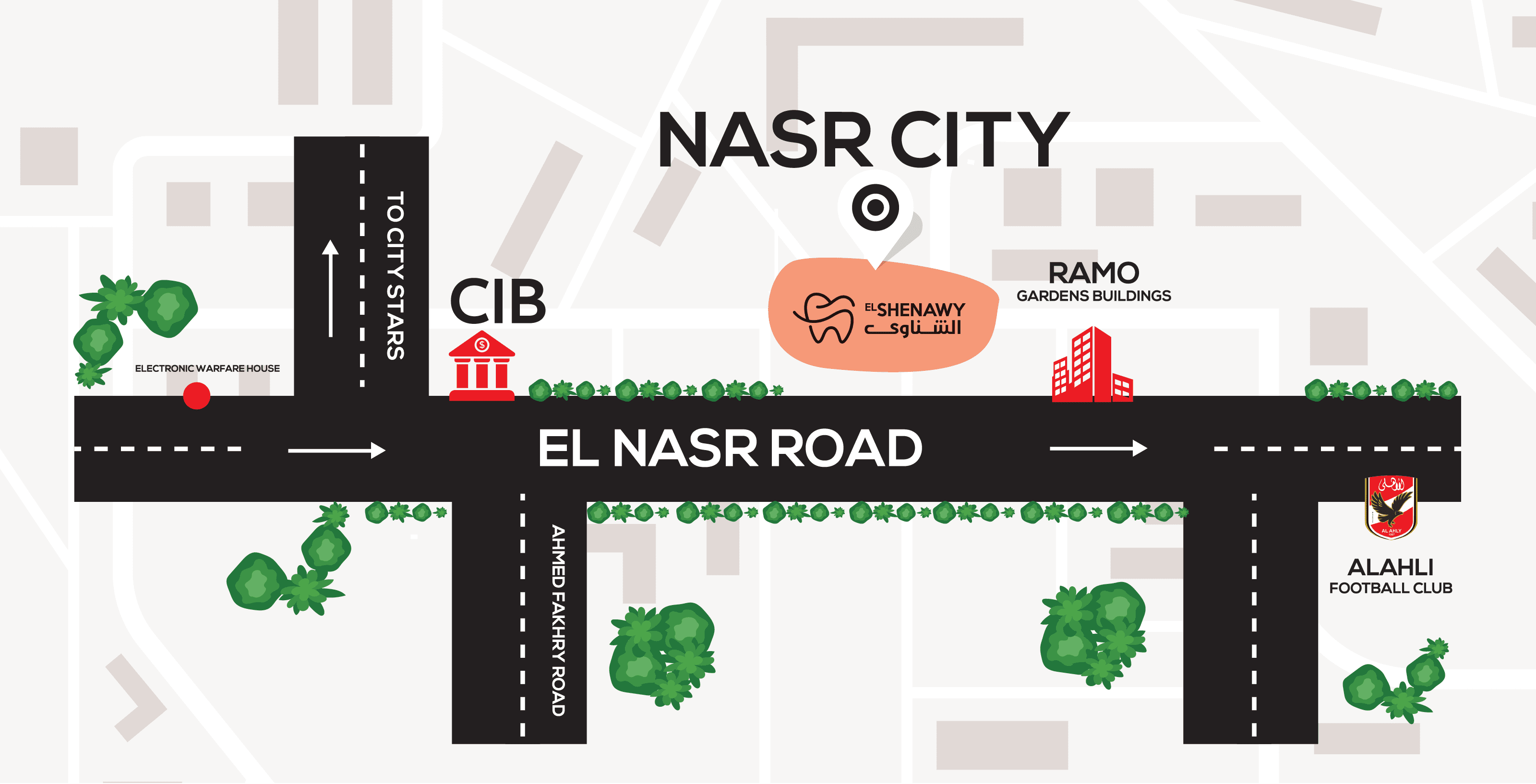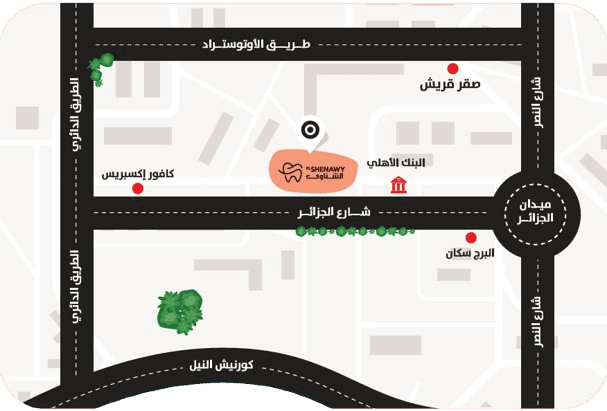Wisdom tooth removal is a common dental procedure that can bring significant relief and prevent future oral health issues. But it’s more than just a routine treatment; it’s an important step toward safeguarding your smile for years to come. Whether you’re dealing with pain from an impacted tooth or taking a proactive approach to avoid future problems, the decision to remove your wisdom teeth can transform your oral health.
At El-Shenawy Dental Clinics, we go beyond simply extracting teeth; we offer a seamless, comfortable experience powered by expertise and cutting-edge technology.
What is surgical wisdom tooth extraction
wisdom tooth extraction is a dental procedure aimed at removing one or more of your wisdom teeth, located at the back corners of your mouth. If there’s not enough room for them to grow, they can become impacted, leading to pain, infection, or damage to surrounding teeth. This common oral surgery is usually performed under local anesthesia.
While some people may not experience any issues with their wisdom teeth, many face complications due to lack of space in the mouth. Even if your wisdom teeth aren’t causing problems now, removal can prevent future dental issues. Accordingly, removing them proactively helps preserve the overall health of your mouth and prevents the need for more extensive procedures later.
Why some people need to take out wisdom teeth
Wisdom teeth are the last permanent teeth to emerge, typically appearing between the ages of 17 and 25. In some cases, they come through without issue, but for many, wisdom teeth can become impacted, meaning there isn’t enough space in the mouth for them to emerge properly. Impacted wisdom teeth can grow at different angles or stay trapped within the jawbone, leading to several potential problems.
Here are the common signs that a wisdom tooth may be impacted:
- Pain and swelling around the back of your mouth
- Infections in the gums (pericoronitis) near the affected tooth
- Food getting stuck around the wisdom teeth
- A wisdom tooth that hasn’t fully come out yet has a cavity.
- Gum disease, especially around your molars
- Damage to nearby teeth or surrounding bone
In some cases, even if wisdom teeth aren’t currently causing pain or issues, dentists may recommend wisdom tooth removal as a preventive measure. Extracting them early can reduce the risk of infections, decay, and other complications down the road.
Step-by-step process of removing impacted wisdom teeth
This process of wisdom tooth extraction can be performed by a dentist or oral surgeon, Depending on how complicated the situation is, you might be sent to see a special doctor.
Steps:
- Anesthesia: Local anesthesia will be used to numb the gums around the impacted tooth, ensuring you feel no pain.
- Making Incisions: If your wisdom tooth is covered by gum tissue or bone, the surgeon will make incisions to expose the tooth.
- Loosening the Tooth: The tooth is carefully loosened from its socket. In some cases, the tooth may be cut into smaller pieces to make removal easier.
- Removing the Tooth: The surgeon will extract the tooth, either in one piece or in sections, depending on its position and how deeply it’s impacted.
- Cleaning the Area: After the tooth is removed, the area will be cleaned to ensure there is no infection or debris left behind.
- Stitching: If necessary, dissolvable stitches will be placed to close the gum incisions.
- Aftercare: Gauze will be placed over the extraction site to help stop bleeding. You may be given instructions on how to care for your mouth during recovery.
The procedure usually takes under an hour, although more complex cases may take longer, and most patients are able to go home the same day.
Upper wisdom tooth extraction
Upper wisdom teeth are usually simpler to remove than lower ones. In most cases, an upper wisdom tooth can be extracted easily under local anesthesia. Your dentist will evaluate whether the extraction can be performed at the dental office or if a referral to an oral surgeon at a hospital is needed, particularly if the tooth is more difficult to access or if you have specific concerns.
Removing an upper wisdom tooth usually starts with making a small cut in the gum to reach the tooth. In most cases, the tooth can be taken out whole. But sometimes, if the tooth is hard to remove, the dentist might need to break it into smaller pieces or remove some bone around it to make the process easier.
After the extraction, you’ll receive aftercare instructions to help promote healing and prevent complications. The procedure usually takes less time than the removal of lower wisdom teeth and is generally less complex.
Impacted wisdom teeth removal recovery
After having wisdom teeth pulled, most people can resume normal activities the day after surgery. However, if the procedure was more complex or you had general anesthesia, you may need 1 to 3 days off work.
For up to 2 weeks after the surgery, you may experience:
- Pain and swelling: This is common but should start to improve after 1 or 2 days.
- Bruising: You might notice bruising on your cheek.
- Jaw soreness: Your jaw may feel stiff or sore.
- Discomfort while chewing or swallowing: This can be expected in the first few days.
Do’s and don’ts after surgical removal of wisdom teeth
Do’s:
- Follow your surgeon’s instructions for any prescribed medications to manage pain and prevent infection.
- Stick to soft or liquid foods until chewing becomes comfortable again.
- Rinse gently with warm salt water or alcohol-free mouthwash to prevent infection.
- Brush and floss around the surgical area, but avoid the extraction sites to protect stitches and blood clots.
- If you start bleeding, put a clean cloth or cotton on the area and hold it there for at least 10 minutes.
- Stay home and rest for at least 3-5 days.
- Use ice to reduce face swelling.
Don’ts:
- Avoid driving in the first 48 hours after general anesthesia.
- Avoid hard, crunchy, or chewy foods that could irritate the surgical site or get stuck in the wound.
- No smoking as it increases the risk of infection and delays healing.
- Avoid hot drinks, these can increase the risk of bleeding and may irritate the extraction sites.
- Avoid strenuous exercise and heavy lifting, which can cause swelling and bleeding.
El-Shenawy dental clinics: top quality dental services
El-Shenawy Dental Clinics are committed to providing top-quality dental services, prioritizing patient comfort and satisfaction. The best dentist in Cairo Egypt, with a team of highly skilled professionals, the clinics offer a wide range of treatments, from routine check-ups and preventive care to advanced procedures like wisdom tooth removal. The clinics use the latest technology and techniques to ensure effective, safe, and comfortable treatments. Whether you’re seeking general dental care or specialized services, El-Shenawy Dental Clinics focus on delivering exceptional results and maintaining your long-term oral health.
Contact us today to schedule your consultation.
Frequently asked questions
- When can I eat after wisdom teeth removal?
You can eat as soon as you feel comfortable after your appointment, but stick to soft foods for the first three to five days.
- When can I eat after I experience wisdom teeth removal?
Contact your oral surgeon if you experience a high fever, excessive bleeding, severe pain, difficulty breathing or swallowing, worsening swelling after three days, or signs of infection.
- What is the typical age for wisdom teeth extraction?
Most people have their wisdom teeth removed in their late teens or early 20s when the teeth are still developing and easier to extract.




